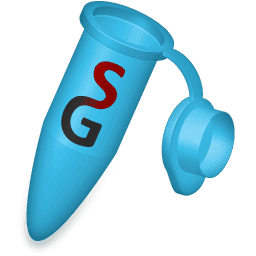

At the moment, companies like 23andMe have preliminary offerings aimed at providing consumers with a useful glimpse at what can be found in their DNA: basic ancestral origins, trait comparisons to other individuals, likelihood for certain known diseases and so on. In a nutshell: personal genetics testing is still maturing and will provide an important platform for medical breakthroughs such as personalized medicine in the near future. IBM received some press in late 2009 with their efforts to get that down to 1,000 through their "DNA transistor" breakthrough. SNP genotyping is not the same as Full Genome Sequencing, a more complex and accurate process, which used to cost around 50,000 per person just a year ago but is now in the sub-5,000 range. They then compare that to known clinical and research reports backed by many trials proving correlations that certain SNPs have with disease risks and traits, with a certain amount of accuracy (the more people in the study, the more accurate).

The gist of it seems to be that they use single-nucleotide polymorphism (SNP) genotyping to analyze more than 580,000 locations in a person's genome and find DNA sequence variations. I'll be honest, a lot of the technology and processes employed by 23andMe go right over my head. And, regardless of my own health it can help my family members as well as others. I also have the opportunity to perform and support research into this disease long before it may affect me. there is evidence that exercise may be protective against Parkinson's). I now have the opportunity to adjust my life to reduce those odds (e.g. I know early in my life something I am substantially predisposed to. This leaves me in a rather unique position. At the same time, research into LRRK2 looks intriguing (both for LRRK2 carriers and potentially for others). In fact, it is somewhere between 20% to 80% depending on the study and how you measure. Nonetheless it is clear that I have a markedly higher chance of developing Parkinson's in my lifetime than the average person. Early studies tend to have small samples with various selection biases. The exact implications of this are not entirely clear. Brin blogged about how he used 23andMe to learn more about Parkinson's disease in his family: But, of course, I learned something very important to me - I carry the G2019S mutation and when my mother checked her account, she saw she carries it too. He not only financially backs 23andMe but he's married to 23andMe co-founder Anne Wojcicki. I decided to give them a shot for almost entirely one reason - Google co-founder Sergey Brin. 23andMe Genetic DNA testing - Ancestry Edition Box (but this review is for the Complete Edition, see disclosure notice)


 0 kommentar(er)
0 kommentar(er)
